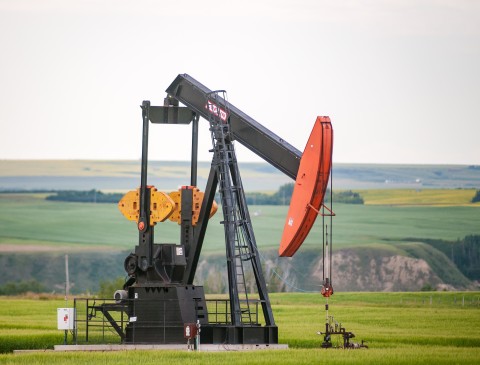
This article originally ran in the Toronto Star.
Calls for windfall profit taxes on oil and gas conglomerates continued to gather steam at COP27, following a demand for action by UN Secretary-General António Guterres in September.
The European Commission recently endorsed the idea. Over a dozen countries have already proposed or implemented such a tax on energy companies, including the U.K., Germany and Italy.
In Canada, the idea of a windfall profits tax is gaining ground, with good reason. As families struggle to afford the basics in life, oil and gas companies are making off like bandits.
Canada’s 10 largest oil and gas companies claimed $66.5 billion in pre-tax profit over the last year, more than double their next best one-year period over the last decade.
The largest profit grab was by Canadian natural resources, which booked $15.8 billion. Pre-pandemic, that industry’s 12-month average was $2.6 billion. Suncor had the second highest reported pre-tax profits of $10.9 billion, compared to a pre-pandemic average of $4.2 billion.
Calls for windfall profit taxes on oil and gas conglomerates continued to gather steam at COP27, following a demand for action by UN Secretary-General António Guterres in September.
The European Commission recently endorsed the idea. Over a dozen countries have already proposed or implemented such a tax on energy companies, including the U.K., Germany and Italy.
In Canada, the idea of a windfall profits tax is gaining ground, with good reason. As families struggle to afford the basics in life, oil and gas companies are making off like bandits.
Canada’s 10 largest oil and gas companies claimed $66.5 billion in pre-tax profit over the last year, more than double their next best one-year period over the last decade.
The largest profit grab was by Canadian natural resources, which booked $15.8 billion. Pre-pandemic, that industry’s 12-month average was $2.6 billion. Suncor had the second highest reported pre-tax profits of $10.9 billion, compared to a pre-pandemic average of $4.2 billion.
With rising prices, oil and gas companies would reap exceptional profits even if they had maintained their average profit margin. But those too have nearly doubled.
Before the pandemic, these top 10 oil and gas companies had an average combined profit margin of 11 per cent. By the end of 2021, their quarterly profit margin had reached more than 15 per cent. It has increased in every quarter of 2022, hitting 21 per cent in the latest, Q3.
Some might hope these exceptional profits would translate into more jobs or investments in carbon reduction measures. There is little indication that is happening.
Out of a combined $86 billion in profits since the pandemic, $84 billion has gone to owners through dividends, share buybacks and acquisitions.
It’s time for a windfall profits tax. Here’s how it would work:
Profits over a certain level would face a surtax. The NDP put forward a proposal that seeks to add 15 per cent on profit over a billion. The U.K.’s version adds a 25 per cent surtax on top of its 40 per cent tax levied on oil and gas profits from North Sea extraction. Canada has already proposed a similar one-time surtax on the financial industry to rectify extreme profits made during the pandemic.
Proceeds of the tax could be used to ease affordability issues and invest in climate action. The government can allow an exemption on profits that are invested in Canada to reduce carbon emissions or help workers transition to green jobs.
Canadians were in favour of the idea, even before gas prices went up and the affordability crisis hit. A poll conducted in summer 2021 reported 87 per cent of Canadians back a tax on large corporations’ excess profits.
The oil and gas lobby is extremely powerful — but as the U.K. and 13 other nations with windfall tax proposals have shown, they are not invincible. A windfall profits tax is one way to make sure that companies and their owners aren’t capitalizing on our affordability crisis while worsening our climate.
